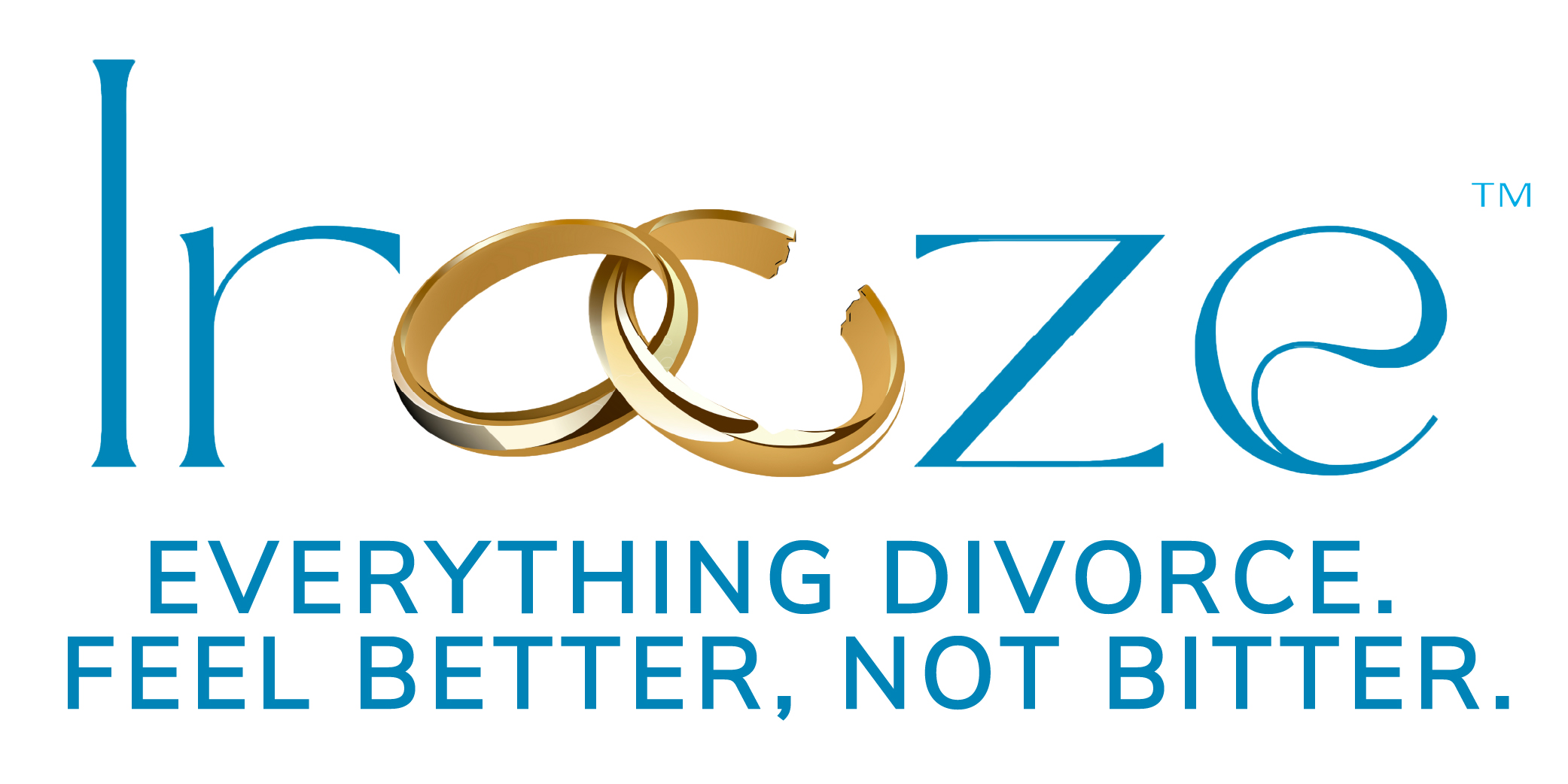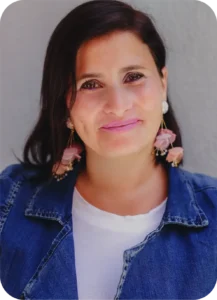Along with Your Family Lawyer, Is a Divorce Coach or a Therapist Best
Divorce is one of the most significant life transitions a person can go through, often marked by emotional upheaval, financial stress, and complex legal processes. As a divorce life coach with a Master’s Degree in organizational psychology and certifications in life coaching and Rapid Resolution Therapy (RRT), I deeply respect the roles of all the professionals who assist during divorce because they each offer something unique.
Divorce attorneys bring legal expertise, ensuring that your rights are protected and that the often-overwhelming legal procedures are managed with precision. Financial advisors help individuals make informed decisions about asset division, retirement planning, and securing a stable financial future.
Therapists provide crucial emotional support, helping clients process feelings of grief, loss, and anxiety.
My role as a divorce life coach is to bridge the gap between these disciplines, offering emotional guidance while ensuring that clients stay proactive, organized, and empowered throughout the entire process. By helping clients manage the stress and overwhelm that naturally accompany divorce, I enable them to make clear-headed decisions that align with their values and long-term goals.
A divorce coach is a trained professional who helps individuals manage the emotional, logistical, and strategic aspects of separation or divorce. Unlike therapists who focus on healing past wounds, divorce coaches concentrate on present-moment support and future-focused planning.
How Divorce Coaches, Therapists, and Lawyers Work Together to Support Your Journey
Each professional plays a vital part, and together, we create a holistic support system designed to help clients emerge stronger and more resilient from their divorce journey.
Divorce comes with many challenges. Sometimes they all come in at the same time while other times it trickles into your life. It’s important to understand the distinct expertise that divorce coaches, therapists, and lawyers bring to the table, and how knowing when to seek each one can make your divorce journey smoother.
If you’re just beginning the divorce process, a divorce coach can help you prepare mentally and emotionally while setting a plan in motion. If you’re experiencing emotional distress or mental health challenges, a therapist may be your first stop. If legal documents or court filings are required, a lawyer should be your initial point of contact.
Here’s an overview of how each professional can be of best service to you:
Why You Need a Divorce Life Coach for Support and Strategy

A divorce life coach helps individuals navigate the emotional and practical challenges of divorce, focusing on empowerment, clarity, and future planning. While a therapist helps you heal from deep emotional wounds, a divorce coach offers action-oriented guidance, helping you stay organized and resilient through the process.
A divorce life coach helps you:
- When you feel overwhelmed by the practical decisions of divorce such as: dividing assets, setting boundaries, and navigating co-parenting.
- When you need help managing your emotions, staying calm, and making informed choices in mediation or legal proceedings.
- When you’re looking for structure, accountability, and guidance as you rebuild your life post-divorce.
- When you want to stay focused on personal growth while maintaining a clear path forward.
Unlike therapists, divorce coaches work toward immediate solutions and strategic planning. They focus on helping you navigate divorce with confidence and self-compassion. Coaches often collaborate with lawyers and therapists to ensure you have the full spectrum of support you need.
In short, a therapist helps you heal emotionally and understand your deeper patterns, while a divorce coach helps you take immediate, practical steps forward. Many people find value in working with both at different stages of their divorce journey.
Case Study: How a Divorce Life Coach Helped Cathy Through the Emotional and Practical Challenges of Divorce
Let’s imagine Cathy, a 42-year-old mother of two, was in the middle of a highly stressful divorce. After 15 years of marriage, her husband had initiated the proceedings, leaving her feeling overwhelmed and unsure about how to handle the numerous decisions that lay ahead. While she had retained an experienced divorce attorney and was working with a therapist to process her emotional grief, she found herself struggling with the daily logistics of divorce—co-parenting, asset division, and navigating the legal process. Cathy was stuck in a cycle of anxiety and indecision, unsure of how to regain control of her life.
Recognizing the need for additional support, Cathy sought the guidance of a divorce life coach. During their initial sessions, her coach helped her identify her primary challenges: fatigue, emotional overwhelm, and a lack of structure. Together, they mapped out a plan for how Cathy could take practical steps while also focusing on her emotional well-being.
Step 1: Empowerment and Decision-Making
One of Cathy’s biggest struggles was making practical decisions regarding asset division. She felt paralyzed by fear and uncertainty, afraid that she might make a mistake that would negatively impact her financial future. Her divorce coach worked with her to break down complex decisions into manageable steps, encouraging Cathy to ask the right questions of her attorney while focusing on clarity rather than fear. By creating a financial checklist, her coach helped Cathy stay organized and confident as she navigated the legal aspects of her divorce.
If you’re unsure how divorce might impact your credit, check out this divorce credit score checklist to stay financially protected.
Step 2: Emotional Management and Calmness
During mediation meetings, Cathy often found herself feeling flustered, leading to heightened emotions and clouded judgment. Her divorce coach used techniques from Rapid Resolution Therapy (RRT) to help Cathy reprogram her thoughts to help her reduce stress and stay calm under pressure. With a focus on emotional regulation, Cathy learned how to approach mediation with a sense of calm and self-assurance. This helped her communicate more effectively, making informed decisions without letting emotions interfere with her judgment.
Step 3: Navigating Co-Parenting Challenges
Co-parenting was another area that felt daunting for Cathy. She was unsure of how to set boundaries with her soon-to-be ex-husband, particularly when it came to disagreements about the children’s schedules. Her divorce life coach guided her in setting clear boundaries while maintaining a respectful co-parenting relationship. They worked together to develop communication strategies that helped Cathy assert her needs and remain calm during difficult conversations. With her coach’s help, she built the confidence to make decisions in the best interests of her children, reducing tension in her co-parenting dynamic.
Step 4: Focus on Rebuilding and Personal Growth
As Cathy moved through the practical steps of divorce, her coach also encouraged her to focus on personal growth. Together, they set short-term goals—such as re-establishing her career and rediscovering her passions—and developed a long-term vision for her post-divorce life. This gave Cathy something positive to work toward, helping her stay focused on her future rather than dwelling on the past.
Conclusion
Within a few months, Cathy felt more in control of both the emotional and practical aspects of her divorce. Her attorney handled the legalities, her therapist provided emotional healing, and her divorce life coach helped her navigate the daily challenges of divorce with resilience and confidence. By combining emotional support with actionable guidance, the coach empowered to make clear-headed decisions, set healthy boundaries, and begin rebuilding her life on her own terms.
In this case, a divorce life coach was the missing link, providing the daily structure, decision-making support, and emotional balance that Cathy needed to successfully navigate her divorce.
When to Hire a Divorce Therapist for Emotional Healing

Divorce can trigger grief, loss, and emotional trauma, all of which need to be processed in a healthy way. A therapist specializing in divorce is trained to help you navigate the deeper psychological impacts of divorce, from the dissolution of your marriage to changes in family dynamics and personal identity.
When to seek a therapist specializing in divorce:
- You’re experiencing sadness, anger, guilt, or anxiety related to the end of your marriage.
- You need help working through unresolved trauma or unhealthy relationship patterns.
- You are dealing with mental health issues, such as depression or anxiety, which have been exacerbated by divorce.
- You want to understand how past relationship dynamics influence your current and future relationships.
A therapist provides a safe space for emotional expression and healing. Unlike life coaches, who focus on actionable steps, therapists focus on helping you process grief and gain personal understanding from your emotional experiences.
Case Study: How a Therapist Helped Emily Heal from the Emotional Wounds of Divorce
Emily, a 38-year-old woman, had been married for 12 years before her relationship came to an end. The divorce was not sudden years of unresolved conflicts and emotional distance had led to the inevitable decision. Despite understanding that the marriage was no longer healthy, Emily found herself overwhelmed by feelings of grief, anger, and guilt after separation. She was consumed by self-blame, questioning her worth and feeling emotionally drained. While she had supportive friends and family, the deep emotional pain lingered, and she realized she needed professional help to truly heal.
Emily decided to work with a therapist specializing in divorce, hoping to address the emotional trauma and confusion that had surfaced during and after the divorce process. These were the main focus points:
Processing Grief and Loss
One of the first issues Emily faced was an overwhelming sense of grief. Although she knew divorce was necessary, she was mourning the life she had envisioned, and the years spent with her ex-husband. Her therapist helped her acknowledge that grief is a normal and expected part of the divorce experience. Through talk therapy, Emily was able to express her sadness, disappointment, and fears in a safe and non-judgmental space. Her therapist guided her through the stages of grief, helping her to come to terms with the loss of her marriage without feeling consumed by it.
Understanding and Breaking Unhealthy Relationship Patterns
Emily also struggled with guilt and self-blaming, often questioning what she could have done differently to save the marriage. In therapy, she explored the patterns in her relationship, recognizing that some of her behaviors and beliefs had contributed to the breakdown of communication. Her therapist used cognitive-behavioral therapy (CBT) to help her identify these patterns and understand how they had developed over time. With this awareness, Emily began to reframe her past choices with greater compassion and forgiveness for herself.
Her therapist also guided her in examining the dynamics of her marriage, showing her how certain behaviors were rooted in her childhood experiences. This deeper understanding of herself allowed Emily to gain insight into why she had stayed in an unhealthy relationship for so long and how she could avoid repeating similar patterns in the future.
Managing Anxiety and Emotional Triggers
Throughout the divorce, Emily developed heightened anxiety. She constantly worried about her financial stability, her children’s well-being, and how she would manage life as a single parent. Her therapist helped her work through these anxieties by teaching her coping mechanisms, such as mindfulness and grounding exercises. They also addressed her fear of the unknown and the tendency to catastrophe, replacing these thought patterns with more balanced and constructive perspectives.
Additionally, therapy sessions focused on Emily’s emotional triggers. For example, seeing her ex-husband or hearing about his life after the divorce often sent her into a spiral of negative thoughts and anxiety. Her therapist helped her recognize these triggers and develop strategies to manage her emotional responses. Over time, Emily learned how to handle these situations without being overwhelmed by emotions.
Rebuilding Self-Identity and Confidence
The end of her marriage had also left Emily questioning her personal identity. She had been a wife for so long that she wasn’t sure who she was without that role. Her therapist worked with her on rebuilding her self-esteem and rediscovering her sense of self. They explored Emily’s passions, interests, and strengths, helping her envision a future that wasn’t defined by her marital status.
Emily’s therapist provided her with the tools to regain confidence in herself and rebuild her life on her own terms. Through introspective work, Emily learned to embrace this new chapter of her life as an opportunity for growth and renewal, rather than as a failure.
Conclusion
Over time, Emily experienced profound emotional healing through her work with a therapist. While she had initially focused on the practical aspects of her divorce, such as co-parenting and financial stability, it was the emotional trauma and unresolved feelings that needed the most attention. Therapy allowed her to process these deep emotional wounds, recognize unhealthy relationship patterns, and regain her confidence and sense of self-worth.
Through specialized therapy, Emily was able to heal emotionally and move forward with a clearer sense of purpose. Unlike a life coach, her therapist helped her delve into the deeper emotional and psychological impacts of her divorce, providing a space for reflection, healing, and personal understanding.
What a Divorce Lawyer Does: Strategy and Legal Protection
The Role of a Divorce Lawyer is to Provide You with Legal Strategy and Protection
A divorce lawyer is a critical player in handling the legal aspects of divorce, from dividing financial assets to establishing custody agreements and protecting your legal rights. Divorce law is complex, and having professional legal representation ensures that your interests are safeguarded. Lawyers are not typically trained in mental health or necessarily excel at emotional support. If you had to repair your broken shoe, would you go to a shoemaker or to dry cleaner? Even though it’s possible that the dry cleaner would know how to quickly fix the shoe, do they have experience with leather, stitching or soles?
Additionally, if you’re trying to keep your legal costs as low as possible, the conversations you would normally have with your divorce coach or therapist, will rack up your legal bill quickly and needlessly. Every phone call and every email costs you, at the lawyer’s hourly rate. If you’d like to lower your legal bills, use the lawyer for legal matters only.
When to seek a divorce lawyer:
- You need to negotiate settlements, custody arrangements, or the division of financial assets.
- You’re in a contested divorce or are dealing with complex legal challenges, such as prenuptial agreements or alimony.
- Your spouse has hired a lawyer, and you need representation to ensure a fair legal process.
- You require legal advice on matters like child support, alimony, or asset division.
Divorce lawyers handle the intricate legal paperwork, negotiate on your behalf, and represent you in court if necessary. While they focus strictly on the legalities of divorce, they often work alongside therapists and coaches to ensure you are supported emotionally and practically.
How a Divorce Coach, Therapist and a Lawyer Can Work Together to Keep Your Legal Costs Low
If you think that hiring 2 or 3 separate professionals will simply be unaffordable, we invite you to rethink this by doing some simple math. When a challenging situation arises, would it be more economical to pay your divorce coach her hourly rate or pay your legal hourly rate to discuss the matter?
Case Study: How Cindy Navigated Divorce with a Team
Deciding whether to seek a divorce life coach, therapist, or lawyer depends on where you are in the divorce process, your mental health state and the circumstances you are facing and ultimately, what type of support you need. A divorce life coach focuses on helping you move forward with actionable strategies and future planning. A therapist helps you heal emotionally from the pain and trauma of divorce. A lawyer protects your legal rights and guides you through the legal complexities.
Let’s imagine my client, Cindy. Cindy is a 45-year-old woman who has been going through a painful divorce after 20 years of marriage. She initially sought the help of a divorce life coach to manage the emotional and practical challenges of separating from her husband, including setting up new routines, organizing her finances, and managing co-parenting. For a while, Cindy seemed to be making progress—attending coaching sessions, setting goals, and slowly beginning to rebuild her life.
However, after several months, Cindy’s emotional state began to worsen. She started to feel increasingly overwhelmed, anxious, and fatigued. Eventually, she reached a point where she couldn’t get out of bed most days. She stopped attending her life coaching sessions, and despite her best efforts, she couldn’t stick to the plans or stay accountable to the goals she and her coach had set. Every day felt heavier than the last.
How Addressing Depression Helped Cindy Reclaim Her Life After Divorce
Recognizing that this was more than the typical stress of divorce, Cindy’s life coach encouraged her to seek the help of a mental health professional. After visiting a psychiatrist, Cindy was diagnosed with clinical depression. During therapy sessions with a licensed therapist, Sarah uncovered a childhood trauma that she had blocked out for years—an experience that had resurfaced amidst the emotional strain of her divorce.
With this new understanding, Cindy began working with her psychiatrist to manage her depression through therapy and, in her case, medication. Her therapist helped her explore the unresolved trauma from her past, which had contributed to her current emotional struggles. Together, they began to slowly unravel the pain that had been lying dormant for so long, giving Cindy the emotional tools she needed to heal.
Now, with her therapy in place and her depression being properly addressed, Cindy can gradually return to working with her life coach. Her coach remains a supportive resource, but they both understand that Cindy’s focus must first be on her mental health before she can begin rebuilding other areas of her life. With the combined support of her therapist and life coach, Cindy is slowly learning to heal and reclaim her life with patience and compassion.
Ultimately, divorce is a multifaceted journey, and having the right professionals by your side—whether a coach, therapist, or lawyer—ensures you can navigate it with clarity, resilience, and a renewed sense of hope for the future.
How Cindy used The Power of Combining Divorce Support Resources
Cindy was one of my divorce coaching clients, navigating a particularly challenging divorce. She was overwhelmed by the legal complexities and the emotional turmoil, but together, we created a plan to help her manage both. Why was I so effective in guiding her through this process? Because I have a background in therapy, have worked with countless women going through divorce, and I’m an active member of the National Association of Divorce Professionals, where I continually engage in professional development.
While each professional played a unique role, this powerful combination offered her comprehensive support during her difficult divorce process. Such that:
- As her Divorce Life Coach, I offered directions and helped her stay focused on her end goals. For instance, my role included helping her stay calm, organized, and focusing on her divorce process, evaluating the daily decisions and supporting her through the challenging times whether she needed to vent or cope with the arguments with the father or her children. Working with me alongside her lawyer had proven to be an exceptional combination and helped her reduce her legal costs since my life coaching rates were lower than her family attorney’s rates.
Many people have the tendency to run to their lawyer for each argument or challenging moment. Unless you’re dealing with a legal problem, it’s more effective and cost effective to speak with your divorce life coach during those moments of emotional or practical overwhelm.
- Cindy’s therapist helped her dive deep into her past and help her process emotional pain and develop emotional clarity, which in turn helped her make sound decisions during her legal proceedings. This emotional healing work was critical in helping her navigate the divorce with resilience and self-awareness.
Why Divorce Lawyers Appreciate Well-Prepared Clients
The holistic combined work with Cindy coach and therapist allowed her to show up as a reasonable and mature client who was able to make quick, effective and actionable decisions, which made her lawyer’s job far easier! (And actually, a lawyer’s dream client). Her lawyer protected her legal rights, offered her expertise on the legal aspects of divorce and was able to clearly understand what she wanted and focus his attention on results.
- Her family lawyer played a vital role in protecting her legal rights, offering expertise on the legal aspects of divorce, and negotiating on her behalf. But because Cindy had already worked through many of her emotional challenges with her therapist and stayed focused on practical, actionable decisions with me, she became her lawyer’s dream client. She was clear on what she wanted and could articulate it with confidence, allowing her attorney to focus on achieving results rather than managing emotional crises.
In short, the holistic work between her divorce coach and therapist allowed Cindy to show up as a reasonable and mature client, capable of making quick, effective decisions. This made her divorce process smoother, saved her time and money, and ultimately gave her the best possible outcome.
Considering a divorce coach but unsure if it’s the right fit? Start with the Irooze Free Self Assessment and then book a free consultation to explore how divorce coaching can help you move forward with confidence, clarity, and emotional strength.
Is a Divorce Coach Worth the Cost?
Divorce coaches typically charge less per hour than family lawyers and are more accessible than therapists for daily decision-making. By using a divorce coach for emotional support, logistics, and preparation, many individuals significantly reduce their legal bills. Investing in a divorce coach is not just cost-effective—it can lead to better outcomes emotionally, financially, and legally.
MEDICAL/ PSYCHOLOGICAL/ LEGAL ADVICE DISCLAIMER.
The information and content provided herein is for informational and educational purposes only, does not constitute medical or psychological advice, diagnosis, or treatment, and does not establish any kind of patient-client relationship. The information and content provided herein does not, and is not intended to, constitute legal advice. Any information presented is not a substitute for any kind of professional, legal, psychological, health or medical advice, and you should not rely solely on this information. Always consult a qualified professional in the area for your particular needs and circumstances prior to making any professional, legal, health, medical, psychological and financial decisions.
Nothing contained herein should be construed as medical, psychological, legal, or financial advice, and this article is not a substitute for such advice or services. You acknowledge that the content provided herein is not a substitute for professional mental health care or medical care and is not intended to diagnose, treat or cure any mental health or medical conditions.
You also understand that Hope Firsel, is not acting as a mental health counselor, medical professional or legal professional. Hope Firsel STRONGLY RECOMMENDS THAT THOSE SEEKING MEDICAL OR MENTAL HEALTH ADVICE SEE A QUALIFIED PROFESSIONAL IN PERSON. IF YOU ARE THINKING ABOUT SUICIDE, IF YOU FEEL YOU MAY BE A DANGER TO YOURSELF OR OTHERS, OR IF YOU OTHERWISE HAVE ANY MEDICAL EMERGENCY, PLEASE IMMEDIATELY NOTIFY THE POLICE OR EMERGENCY MEDICAL SERVICES IN YOUR AREA. IN THE UNITED STATES, PLEASE DIAL 911.
RESULTS DISCLAIMER.
While we may reference certain results, outcomes or situations herein and in connection with Hope Firsel’s Services, you understand and acknowledge that we make no guarantee as to the accuracy of third-party statements made or the likelihood of success for you as a result of these statements. You understand that individual results and outcomes will vary. We cannot guarantee your success merely by your participation in Hope Firsel’s Services or your access, purchase or completion of any material provided relating to the Services, including this article. Any results provided in connection with the Services are not guaranteed or typical.





